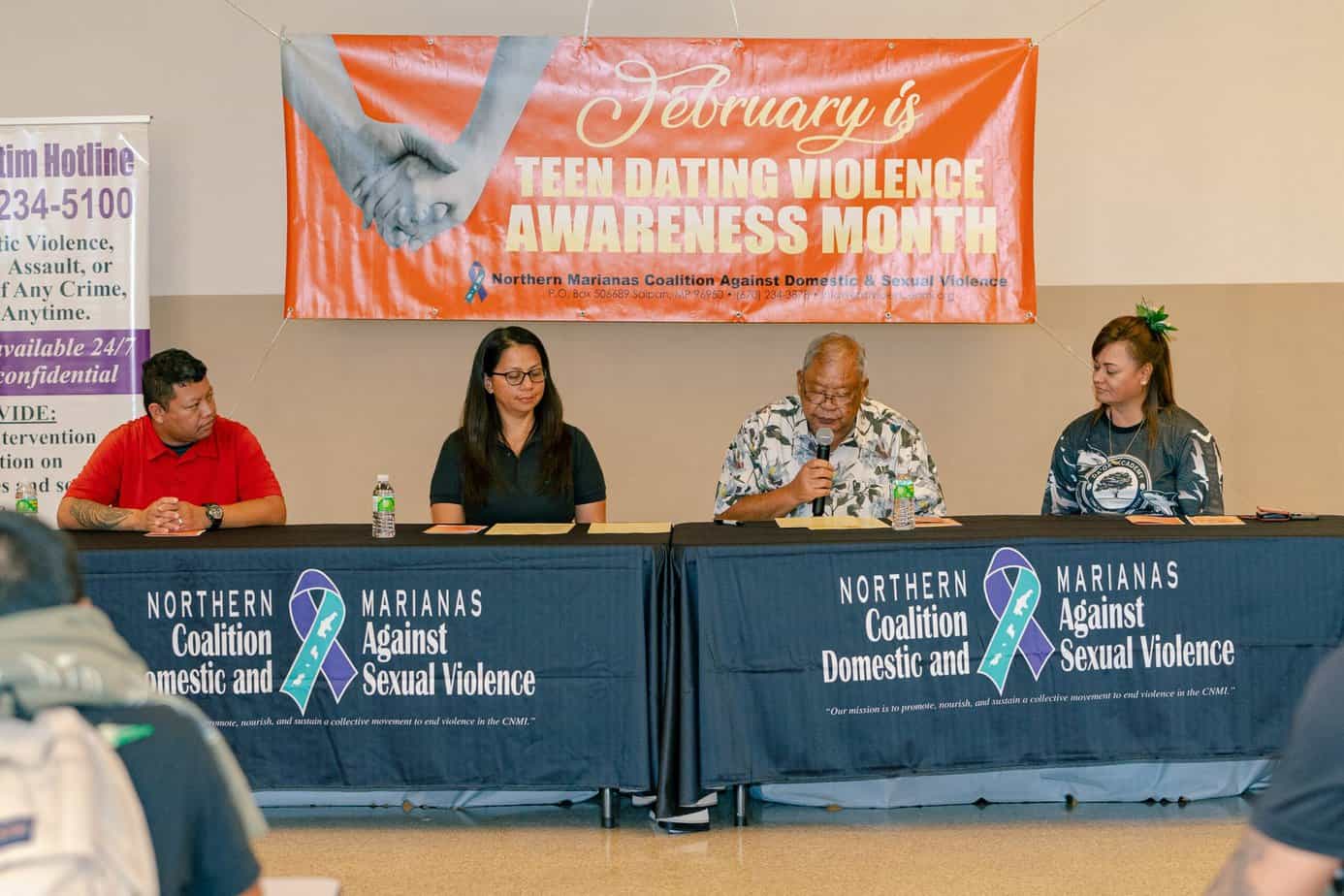WHEREAS, teen dating violence is pervasive, yet an underreported crime in our community that happens in person, online, and through technology. This form of intimate partner violence affects millions of teens every year. It is a pattern of behaviors involving the use or attempted use of abuse including physical violence, sexual violence, psychological aggression like emotional abuse or intimidation, and stalking of another person with whom they have or have had a teen dating relationship; and
WHEREAS, although dating violence can happen to anyone at any age, 26% of women and 15% of men who were victims of physical violence, sexual violence, and/or stalking by an intimate partner first experienced these or other forms of violence before the age of 18. Nearly 1 in 11 female and 1 in 14 male high school students reported experiencing physical dating violence in 2019. Female high school students also reported experiencing sexual dating violence at more than triple the rate of their male peers. In addition, lesbian, gay, bisexual, transgender, queer, or questioning youth are disproportionately affected by dating violence, as well as other forms of violence compared to their straight and cisgender peers; and
WHEREAS, the impact and trauma of teen dating violence can be immediate and can also have long-lasting effects. For example, those who have experienced teen dating violence are at a higher risk for substance abuse, eating disorders, risky sexual behavior and further domestic violence. Additionally, half of youth who have been victims of both dating violence and rape attempt suicide, compared to the 12.5% of non-abused girls and 5.4% of non-abused boys; and
WHEREAS, abusive behavior in dating relationships often happens infrequently and subtly, as in monitoring interactions with other people, controlling physical appearance, ignoring, or violating personal boundaries. Teens may not realize the signs of teen dating violence and that it is a serious crime, or they might not know how to seek help. Over time the abusive behaviors can escalate in frequency and severity; this can be as severe as physical battering, extreme emotional abuse, rape, and even death; and
WHEREAS, despite how often this occurs, only 1 in 3 teens in abusive relationships ever tell anyone about it. Therefore, as adult allies, we have a duty not to ignore, downplay, remain silent on, or support attitudes and beliefs that allow violence and abuse to continue. It is crucial that we work to raise awareness and empower teens with tools to help themselves and their peers in abusive relationships. We must also lead by example in our own lives from making healthy choices to promoting acceptance of LGBTQ+ youth to talking more openly about mental health; and
WHEREAS, Teen Dating Violence Awareness Month is a national effort to raise awareness about abuse in teen relationships and promote programs that prevent it. Throughout February, organizations and individuals nationwide are urged to come together to bring attention to the significant need to continue educating young people about dating violence and empower them to make healthy relationship choices to end the devastating cycle of abuse.
NOW, THEREFORE, I, DAVID M. APATANG, Acting Governor of the Commonwealth of the Northern Mariana Islands, by virtue of the authority vested in me by the Constitution and Laws of the Commonwealth, do hereby proclaim February 2023 as
TEEN DATING VIOLENCE AWARENESS MONTH
This month, let us all come together to raise awareness about abuse in teen relationships, empower our youth to make healthy choices in relationships, and promote programs that prevent this so that we may break the hurtful cycle of dating violence so that our youth can live lives free of violence and abuse.
IN WITNESS WHEREOF, I have hereunto set my hand on this 9th day of February 2023.
/s/
DAVID M. APATANG
Acting Governor
###








